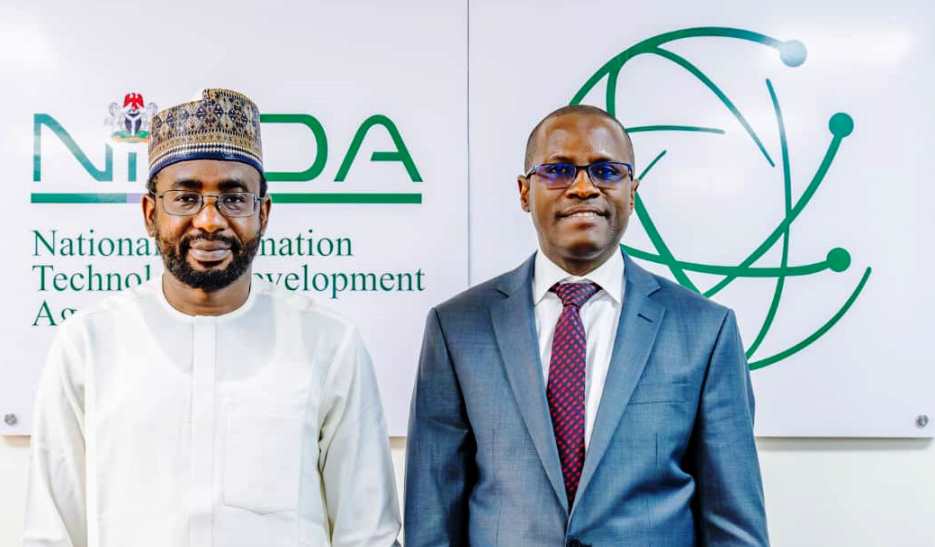Acts of kindness and compassion often serve as powerful reminders of the good that still exists in society. One such story, shared widely online, has moved many Nigerians and West Africans as it details the remarkable journey of a man who unexpectedly became the godfather to a set of twins following an extraordinary act of courage.
According to a lengthy account posted on https://x.com/yabaleftonline, the man narrated how an ordinary morning commute to work took a dramatic turn. While driving through a busy Nigerian street—a scene many Lagosians or Accra residents can readily envision—he noticed a pregnant woman by the roadside, visibly distressed and evidently in urgent need of help.
Though she couldn’t articulate her pain, her expressions spoke volumes. Her discomfort was unmistakable, yet, surprisingly, multiple taxis and okada riders sped past her, unwilling to stop. Stories like this reflect the persistent transportation and emergency response gaps faced daily in many Nigerian and West African cities, where fear of involvement or rushed schedules too often override empathy.
Refusing to join the onlookers, the man quickly sprang into action. According to his recount, he enlisted the help of nearby bystanders to gently usher the woman into his car. Realizing the urgency, he immediately set off toward the nearest hospital, determined to ensure she got medical attention as swiftly as possible.
However, the situation soon escalated when, according to his account, he glanced in the rearview mirror and saw the woman in the throes of labour, bravely attempting to deliver her child by herself right there in his car. It’s a scenario that, while extraordinary, underscores the challenges that many pregnant women face due to delays, lack of emergency transport, or insufficient healthcare resources across the region.
Moments later, with limited time and resources, the woman gave birth to her first baby in the backseat of the car—a story that, according to urban legends and occasional news reports, isn’t entirely uncommon in parts of Nigeria where “emergency roadside births” are a known phenomenon. But the ordeal wasn’t over yet. Amidst the relief, she repeatedly said, “It’s remaining one,” hinting at the imminent arrival of another child.
With renewed urgency and a sense of responsibility, the man kept driving, reportedly shaken but focused, until they reached the hospital. There, medical personnel wasted no time and immediately admitted the woman, validating the importance of timely healthcare intervention.
Within minutes, and under the careful care of hospital staff, she gave birth to her second son, completing the unexpected journey to motherhood with a healthy set of twin boys. According to the man’s retelling, both mother and babies were declared safe and well—a relief for all involved.
The man expressed gratitude and awe at the outcome, thanking God for positioning him as an “instrument of help.” Overwhelmed with joy, he shared the news that he had been chosen as the godfather to the twins, acknowledging the deep bond that had formed in the wake of this life-altering event.
The account has since gained significant attention across social media platforms in Nigeria, Ghana, and wider West Africa, with many online users applauding his bravery, quick thinking, and generosity. In a country where stories of indifference sometimes dominate headlines, this viral moment has reignited conversations around empathy and communal responsibility.
See tweets below,
Why This Story Resonates in Nigeria and Beyond
Such stories strike a powerful chord in Nigerian society, where access to healthcare and emergency support is still a challenge for many. According to Nigeria’s National Bureau of Statistics (NBS), inadequate transportation is a leading barrier to accessing timely medical care, especially for pregnant women living in urban slums or rural areas. The World Health Organization (WHO) similarly notes that weak health systems and delayed care are contributing factors to maternal and infant morbidity rates across the region.
Experts like Dr. Amina Ojei, a public health advocate in Lagos, emphasize the pivotal role of bystander support and community responsiveness, particularly in urgent situations: “Many complications in childbirth can be avoided or safely managed with prompt community action and speedy transport to a hospital. Every life saved through collective help is a reminder of our shared humanity,” she explained in a phone interview.
The story also spotlights structural issues: insufficient ambulance services in major cities, the cost barriers for low-income women, and sometimes, societal hesitation to intervene in emergencies for fear of police interrogation or legal complications. Community safety initiatives in Lagos and Accra have increasingly highlighted the importance of responsible citizen involvement and public education.
Wider Reactions: Social Media and Local Communities Respond
On social media, Nigerians and Ghanaians have shared words of appreciation for the man’s actions, many highlighting their own experiences witnessing or helping with emergency births on public transport. Memes and commentaries praising “everyday heroes” have proliferated, while some users expressed hope for more government investment in healthcare logistics and basic emergency training for the public.
Opinions are not unanimous, however. Some commenters, like @ifeomadave on X, pointed out that while acts like this man’s are commendable, “No one should have to risk such a situation—improved ambulance response and safe public transport should be the norm, not the exception.”
Meanwhile, maternal and social health organizations have seized the viral moment to push for renewed commitments to supporting expectant mothers. Media professionals and public commentators are urging relevant agencies to adopt measures that encourage prompt, supportive intervention rather than bystander apathy.
Comparative Insights: Similar Stories Across Africa
These kinds of stories aren’t unique to Nigeria. Across West Africa, challenges relating to maternal health and transport are well-documented. Ghana’s Ministry of Health has cited similar barriers, though recent investments have been directed toward community health workers and rural ambulances. In both countries, the idea of communal support is embedded in cultural values—yet there remains a gap between ideals and the everyday realities faced by millions.
Research by UNICEF Africa estimates that over 70% of births in rural areas occur outside hospital settings, placing added reliance on family or good Samaritans. In some cases, as echoed by the viral story, quick action from everyday citizens makes all the difference between life and death.
Looking Forward: Lessons Learned and Next Steps
In reflecting on this story, many health experts and social commentators agree on a key takeaway: While individual acts of heroism are inspiring, systemic reforms are absolutely necessary. Improved access to healthcare, reliable ambulance services, community mapping for emergency hotspots, and public sensitization about the importance of aiding strangers in distress are all critical.
What’s Your View? Would you have stopped to help in this situation, knowing the risks and the challenges? Have you or someone you know been involved in an emergency roadside birth or a similar act of kindness?
Join the conversation! Share your opinion or personal experience in the comments below. To stay informed with ongoing stories like this and more updates about health, community news, and uplifting moments across Nigeria and Africa, follow us on our social platforms.
We also welcome your tips, reactions, and opinions at support@nowahalazone.com.
Follow us for more updates on Facebook, X (Twitter), and Instagram.
Your voice matters—join our growing community of readers making a difference!










